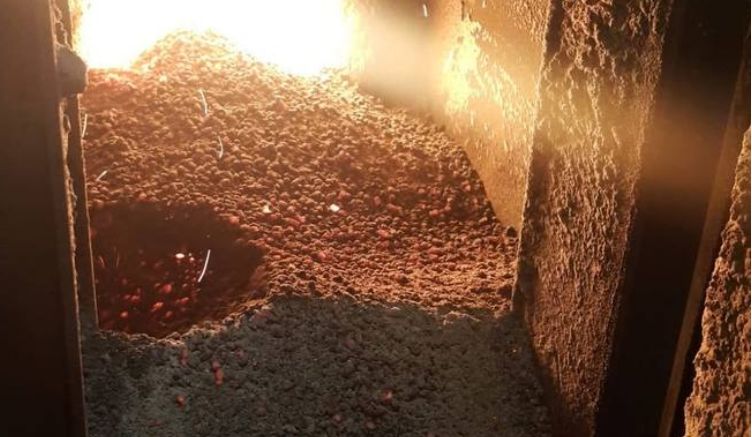A public debate has flared up in Lithuania after a farmer suggested selling wheat for heating purposes. The farmer argued on social media that burning wheat in stoves is cheaper than buying pellets or firewood: a ton of wheat costs €140, compared to €260 for pellets, LRT reports.
“It’s more profitable to burn wheat than to buy pellets or firewood. Wheat costs €140 per ton, while pellets cost €260. So we heat our buildings with food-grade wheat and save money. We can even offer dried, first-grade food wheat for just €200 per ton from our warehouses,” wrote farmer Ed Sasnauskas on his Facebook page.
Naturalist Mindaugas Ryla noted that while farmers are free to use their products, wheat is grown with EU subsidies, and selling it for heating purposes is “unethical,” since taxpayers fund its production. “It gives the impression that we simply have a surplus of grain. Can a farmer do that? I don’t know — maybe it’s a marketing trick. But the post sounds radical, especially from an environmental standpoint: fertilizers and pesticides are used in grain cultivation, and we all feel their effects,” Ryla said.
Vice President of the Lithuanian Farmers’ Union Martynas Puidokas added that grain market prices have fallen so low that sales no longer cover production costs. “This doesn’t affect food prices because farmers have little influence — prices are set by intermediaries,” he explained, adding that farmers receive subsidies to balance income and ensure affordable, safe food.
Head of the Lithuanian Pig Breeders Association Algis Baravikas emphasized that burning grain raises ethical questions but sometimes occurs due to surplus or low-demand crops. “Rapeseed, triticale, and other cereals can also be used for heating. Compared to wood, they’re easier to store and have higher calorific value,” he said. Ryla stressed, however, that EU-financed grain should not be used for non-food purposes and that dedicated biomass crops have a smaller environmental footprint.
Puidokas concluded that while such practices are not acceptable, they remain rare, and large-scale burning of grain is not taking place.




